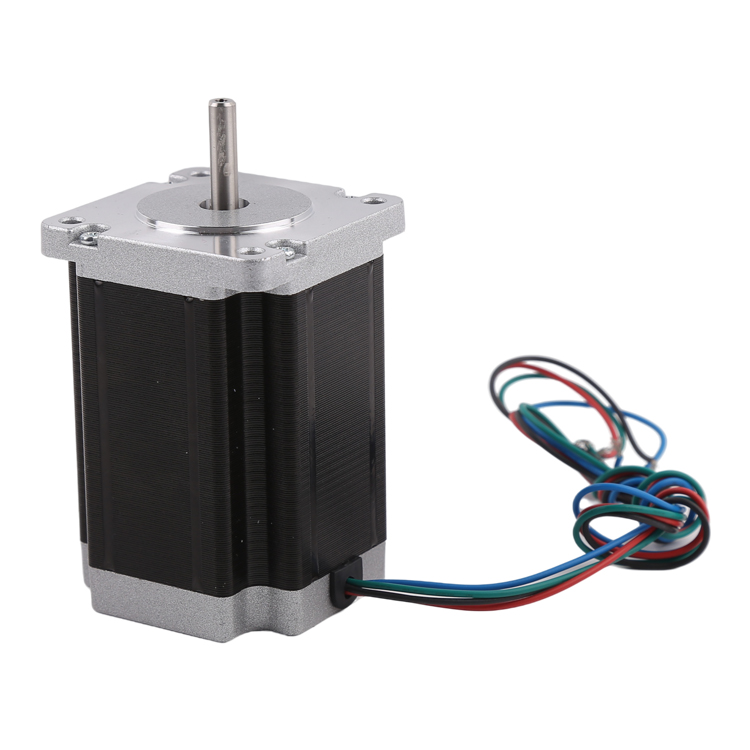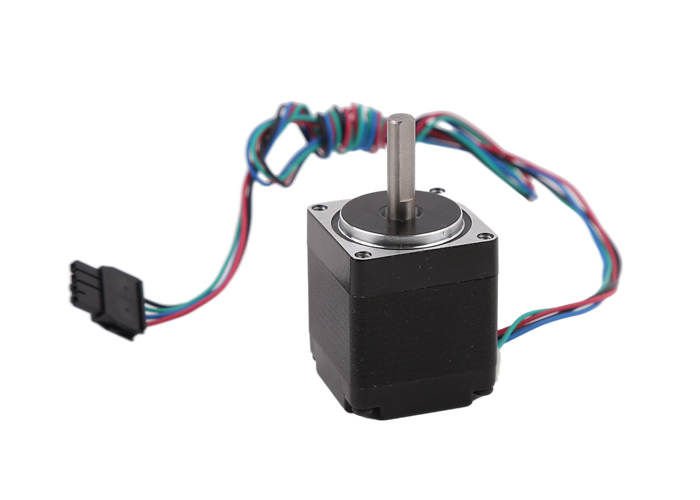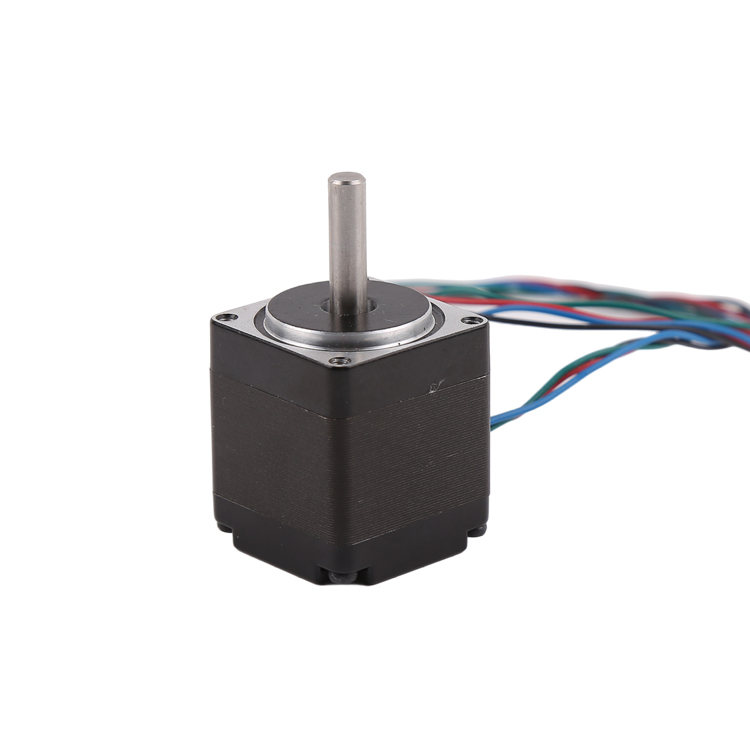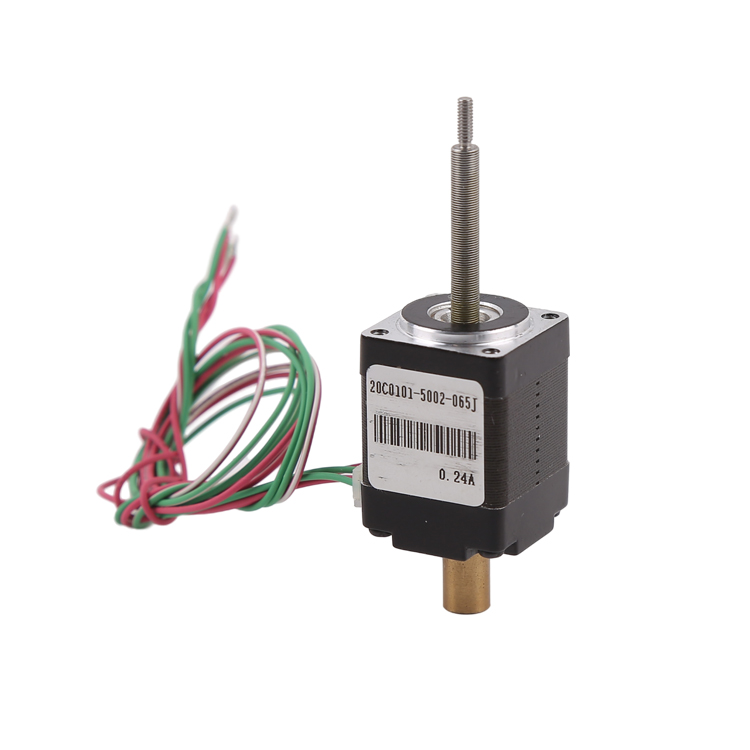With the rapid development of industrial automation and intelligent manufacturing, hybrid stepper motors have gradually become the core driving components in the field of precision control due to their unique performance advantages. This article provides an in-depth analysis of the working principle, core advantages, and typical application scenarios of hybrid stepper motors, helping readers to fully understand the value of this technology in modern industry.
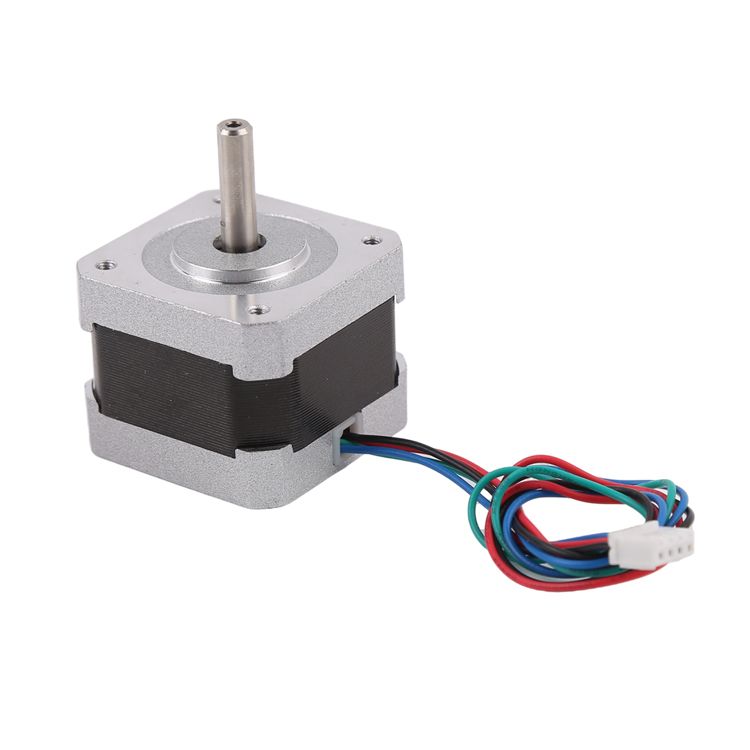
一、 Technical advantages of hybrid stepper motors
The hybrid stepper motor combines the design characteristics of permanent magnet stepper motor (PM) and variable reluctance stepper motor (VR), and achieves the following significant advantages by optimizing the magnetic circuit structure and control method:
1. High precision positioning and control
The hybrid stepper motor adopts subdivision drive technology, which can subdivide the single step angle to the micro step level (such as 0.9 ° step angle can reach 0.0035 ° through 256 subdivision), meeting the strict requirements of precision equipment for position control and suitable for high-precision scenarios such as 3D printing and CNC machine tools.
2. High torque output and stability
By using rare earth permanent magnet materials and optimizing winding design, hybrid stepper motors can maintain high torque output at low speeds with minimal torque fluctuations, avoiding the problem of “out of step” caused by load changes in traditional motors and significantly improving system reliability.
3. Energy saving and low heating characteristics
Compared to ordinary stepper motors, the hybrid design reduces copper and iron losses, and with closed-loop control technology, it can further reduce energy consumption, lower long-term temperature rise, and extend equipment service life.
4. Quick response and flexible control
Open loop control can be achieved without the need for a complex feedback system, supporting direct pulse signal drive, with short response time (millisecond level), and can be flexibly adapted to various controllers such as PLC and microcontroller.
5. Strong environmental adaptability
The protection level can reach IP65, with high temperature resistance, dust resistance, and vibration resistance, suitable for complex working environments such as industrial workshops and medical equipment.
二、 Core application areas of hybrid stepper motors
1. Industrial automation equipment
CNC machine tools and robotic arms: used for high-precision motion control such as tool positioning and workpiece clamping.
Packaging Machinery: Control the speed and sealing position of the conveyor belt to improve the efficiency of the production line.
Semiconductor manufacturing: Drive wafer cutting machines and dispensing machines to ensure micrometer level processing accuracy.
2. Medical and laboratory equipment
Medical imaging system: CT scanner, rotating platform drive for X-ray machine.
Biochemical analyzer: Accurately control the movement of reagent probes to reduce the risk of sample contamination.
Surgical robot: Provides stable force feedback and joint motion control.
3. Consumer electronics and smart hardware
3D printer: Control the 3D movement of the print head and platform to ensure consistent layer thickness.
Intelligent security: Drive the pan tilt camera to achieve smooth 360 ° monitoring.
Office automation: paper feeding system for copiers and scanners.
4. New energy vehicles and aerospace
In car equipment: electric seat adjustment, charging pile locking mechanism.
Drones and robots: servo control, rotor positioning, enhance flight stability.
Satellite antenna: achieving high-precision pointing and tracking.
5. Energy conservation and renewable energy
Solar tracking system: Automatically adjust the direction of photovoltaic panels based on the angle of illumination to improve power generation efficiency.
Smart Home: Silent Drive Solution for Electric Curtains and Smart Door Locks.
三、 The future development trend of hybrid stepper motors
With the popularization of Internet of Things (IoT) and artificial intelligence technology, hybrid stepper motors are upgrading in the following directions:
Integration: Built in driver chip and communication module (such as CAN bus EtherCAT), Simplify system wiring.
Intelligence: Closed loop feedback is achieved through sensors to automatically compensate for position errors.
Miniaturization: Develop micro motors with a diameter less than 20mm to meet the needs of portable devices.
Green Manufacturing: Adopting recyclable materials and low-power design, in line with global carbon neutrality goals.
四、 How to choose a suitable hybrid stepper motor?
Enterprises need to consider the following parameters comprehensively when selecting models:
Torque demand: Calculate peak torque and holding torque based on load inertia.
Step angle accuracy: 0.9 ° or 1.8 ° step angle, combined with subdivision driver to adjust resolution.
Voltage and current: Match the output capability of the driver to avoid overheating or insufficient power.
Protection level: IP65 or above models should be selected for outdoor or humid environments.
Cost and lifespan: Balancing initial procurement costs with long-term maintenance expenses.
五、conclusion
As the “hidden champion” in the field of precision motion control, hybrid stepper motors continue to empower the intelligent manufacturing, medical technology, and green energy industries with their high cost-effectiveness, stability, and reliability. With the iteration and upgrading of technology, its application scenarios will further expand and become a key component driving the Industry 4.0 process. By rational selection and system integration, enterprises can significantly improve equipment performance, reduce operation and maintenance costs, and gain an advantage in market competition.
Post time: May-15-2025

